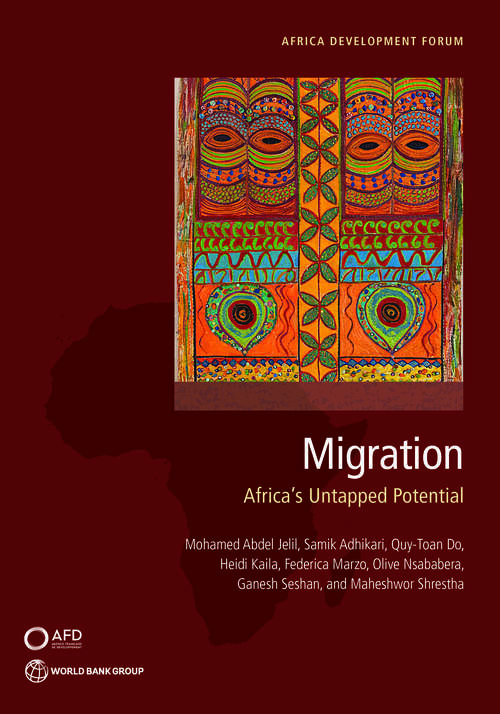Migration: Africa's Untapped Potential (Africa Development Forum)
By: and and and and and and
Sign Up Now!
Already a Member? Log In
You must be logged into Bookshare to access this title.
Learn about membership options,
or view our freely available titles.
- Synopsis
- Migration in Africa is primarily driven by the search for economic opportunity, safety, and security, including from environmental hardships. However, migration's potential to uplift African livelihoods remains largely untapped. While nearly 15 percent of the world's migrant population is from Sub-Saharan Africa, two-thirds of Sub-Saharan migrants stay within Africa, and the majority move within regional economic communities. Africa is also home to a quarter of the world’s refugees, primarily hosted in neighboring countries. Africa is now at a pivotal crossroads. With a rapidly growing young population facing economic stagnation, conflict, and climate change, the continent's workforce is expected to increase by 600 million people by 2050, making up a third of the world's youth. In contrast, labor forces in high-income and upper-middle-income countries are set to decline by 200 million. This demographic divergence opens a window of opportunity for Africa to enhance its migration management systems. Realizing the potential of migration requires deliberate policies to address challenges and maximize the benefits of migration for both origin and destination countries, as well as for the migrants. Investing in migration systems can better support migrants across the migration cycle, from developing skills in demand domestically, regionally, and globally to ensuring dignity and safety in transit or at their destination. Increasing the number of legal migration pathways is crucial to disincentivize irregular movements and foster safe, orderly migration. Effective migration management also includes promoting integration in host societies and facilitating voluntary returns. This can be achieved through instruments such as bilateral labor migration agreements with destination countries. Entering these agreements as a unified bloc would strengthen individual countries' bargaining power, improve conditions for migrants, and maximize the economic benefits of migration. Additionally, the empowerment and self-reliance of refugees and internally displaced persons call for increased collaboration among African nations. “Contrary to preconceived ideas, and in accordance with its vocation as a bank for reconstruction and development, the World Bank adopts an optimistic posture and advocates for the asset that is migration to be jointly and strategically managed by origin and host countries. The day is no longer far away when Africa will offer contingents of qualified migrant workers, actors in the development of countries of origin and important contributors to the world’s economic growth and stability.†? —Tiébilé Dramé, former Minister of Malians Abroad “An insightful review of the untapped potential and policy challenges surrounding African migration.†? —Christian Dustmann, Professor of Economics, University College London, and Director, ROCKWOOL Foundation Berlin (RFBerlin)
- Copyright:
- 2025
Book Details
- Book Quality:
- Publisher Quality
- ISBN-13:
- 9781464821691
- Related ISBNs:
- 9781464821684
- Publisher:
- World Bank Publications
- Date of Addition:
- 10/22/25
- Copyrighted By:
- International Bank for Reconstruction and Development / The World Bank
- Adult content:
- No
- Language:
- English
- Has Image Descriptions:
- No
- Categories:
- Nonfiction, Business and Finance
- Submitted By:
- Bookshare Staff
- Usage Restrictions:
- This is a copyrighted book.
Reviews
Other Books
- by Maheshwor Shrestha
- by Samik Adhikari
- by Mohamed Abdel Jelil
- by QuyToan Do
- by Kaila
- by Olive Nsababera
- by Ganesh Seshan
- in Nonfiction
- in Business and Finance
